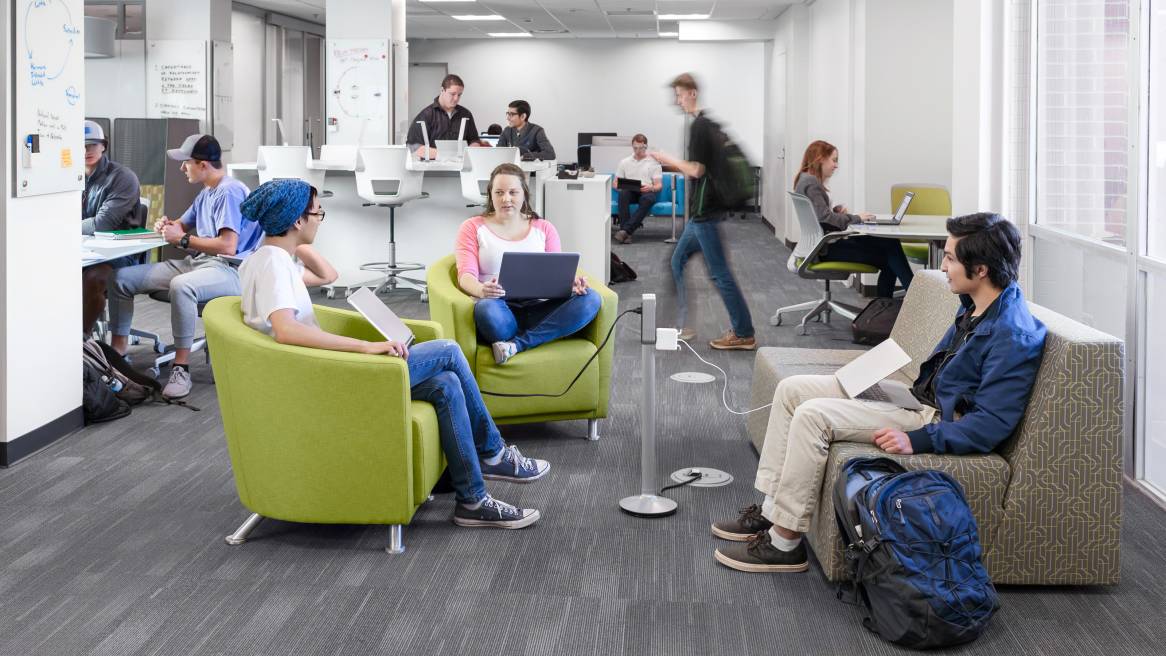University of Oklahoma: New Learning Space
Traditional computer labs are anachronisms, designed when computers dominated desktops.
Old school computer lab transformed into multi-function learning space
Traditional computer labs are anachronisms, designed when computers dominated desktops. Today’s college students carry all the computing capability they need in their back pockets. In fact, a typical college student has three to five wireless devices.
Pedagogies have changed, too, evolving from mostly rote memorization and individual study to more group collaboration and content development.
These changes have colleges rethinking how their real estate can best support new ways of learning, and computer labs are prime targets for reinvention.
“There’s a lot of conversation about flipping the classroom. We decided to flip the computer lab.”
John Verbick IT Program Manager, Learning Spaces at the University of Oklahoma
With an investment of resources from OU’s Housing & Food Services and IT departments, as well as close collaboration with the university’s Facilities Management department, Steelcase and Scott Rice, Verbick and his team tackled a computer lab that had remained unchanged for 20 years.
“Old style computer labs were very rigid. Fixed desks, hard wired desktops. You couldn’t move anything around. What you could do was defined by the space. We wanted a space students could use in different ways. In other words, the use would define the space,” says Verbick.
A survey of students found that their top five needs for the new space were fast Wi-Fi, easy access to power distribution, comfortable seating, printing services and writable surfaces.
“We developed a vision for a space where students can work individually and in groups, and use both digital and analog tools,” says Verbick.
An ecosystem of spaces
College students’ learning activities change constantly. They might do individual research, meet with a study group, write a paper or practice for exams, all in the same day.
The new Couch Practice Center, named after the residence tower where it’s located, offers students an ecosystem of spaces: a variety of collaborative and individual spaces that support a range of learning activities.
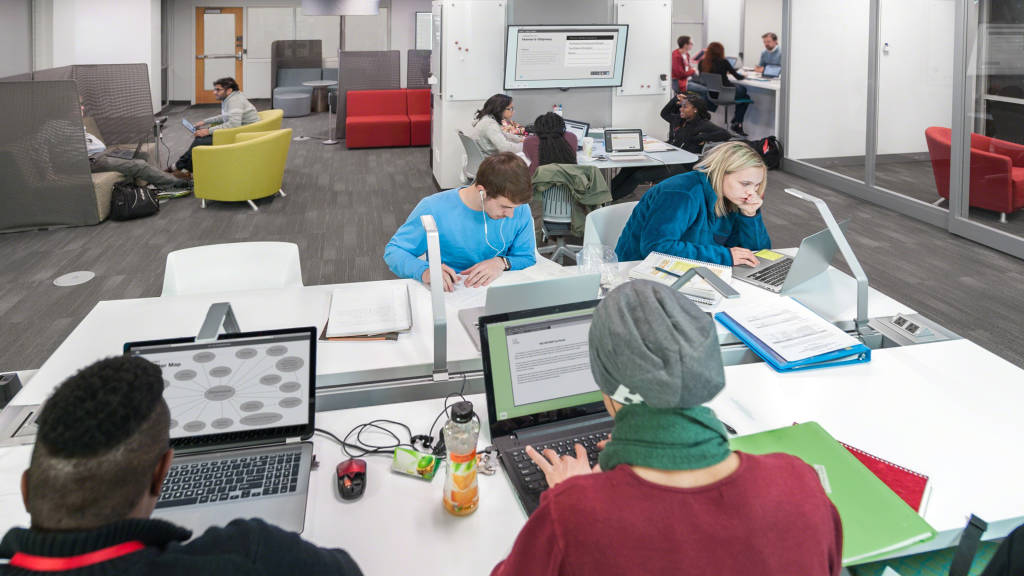
“The basic idea was that this real estate had to do more. We made sure this new space will have a useful life that extends for a long time,” says Verbick.
For example, surveys revealed that OU students value the ability to balance privacy and interaction, so Couch has options for individual study, such as lounge areas and a standing height table in the middle of the space. Movable screens and whiteboards can be positioned as needed to screen immediate distractions yet keep students in touch with the vibe of the space. There are also private study spaces such as carrels and quiet corners, for individual study without distraction.
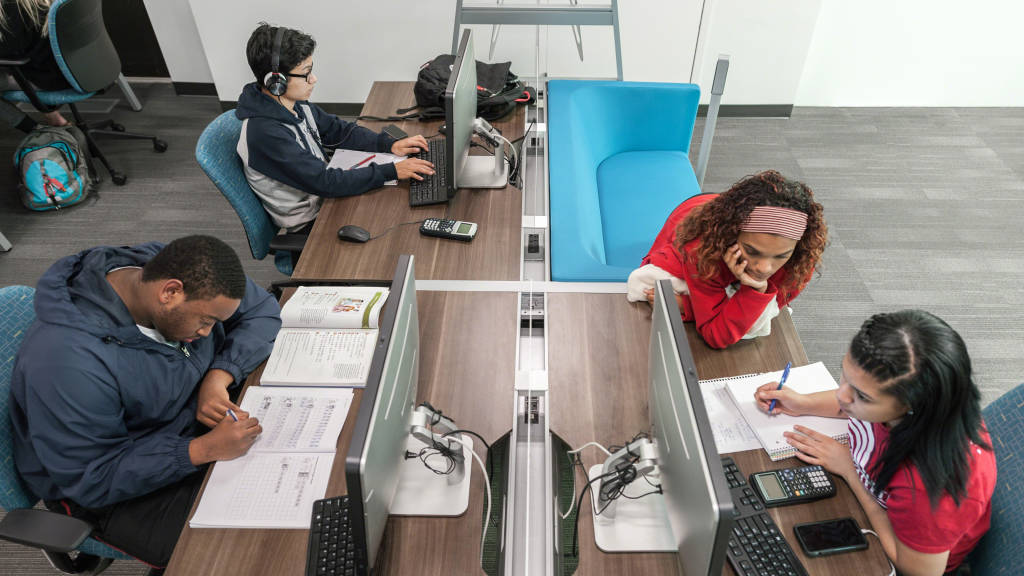
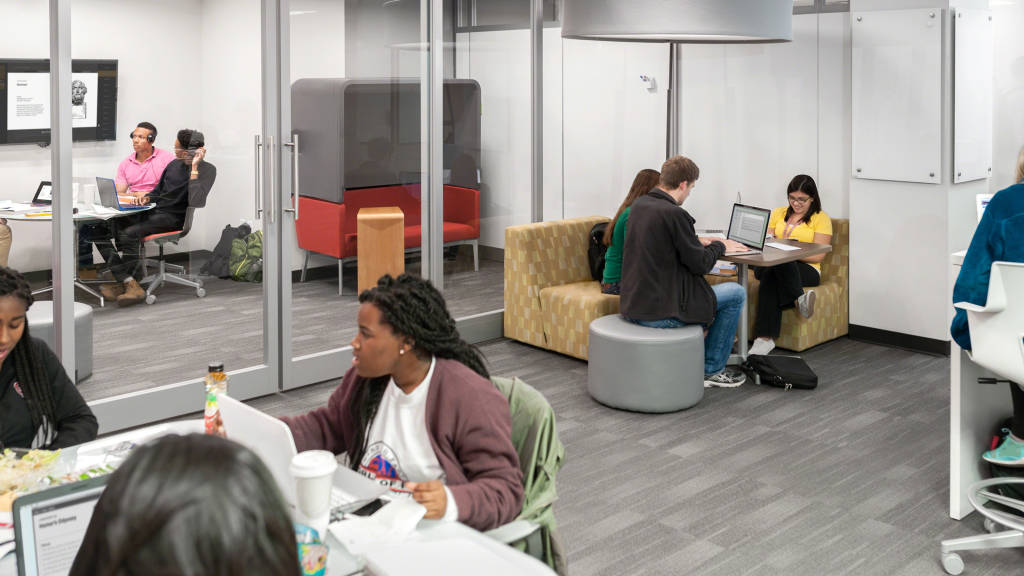
Open workspaces at Couch support students working with peers or faculty and staff. Varied postures —sitting, standing and lounging— are supported, too. An enclosed team room and a small classroom support collaboration and provide acoustical privacy.
The ability to choose where they study provides students with a sense of ownership and control over how they learn. After all, a goal of higher education is empowering students to take control of their learning, to develop study and work habits they can use throughout their careers.
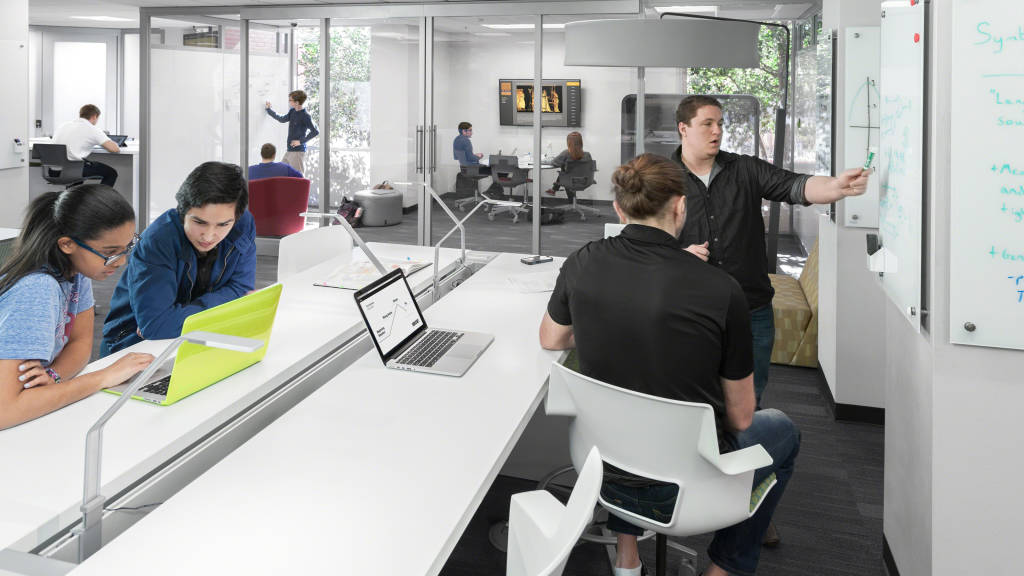
Flexibility is contagious
Flexibility is ubiquitous at Couch. Enclosed spaces are built with modular walls, so the largest enclosed space, for example, shape-shifts from classroom to closed door private space to freewheeling project area.
Nearly all furniture is mobile. Students can connect their own devices to large flat screens in the space. Printing, which was the primary reason students visited the old computer lab, is now available via the cloud. Students can print from anywhere to a kiosk at Couch or other campus locations.
Students quickly embraced the flexibility of the new space. Tables, chairs, screens and whiteboards are constantly being shifted, repositioned, used by one team then repurposed by another.
Collaborative furniture has enhanced a spirit of collaborative content. Verbick recalls a group of students studying for an anatomy course filling a whiteboard wall with notes and drawings. Later when they left Couch the wall of content remained. Another group of students arrived and started working with the same notes, annotating and expanding them. “It wasn’t an intentional thing. The space just encourages students to record information and work together, and other students were able to enlarge on that work and have a more meaningful and valuable experience.”
Limitless power
Tech-laden students are always looking for power for their devices, so OU planned to make power “pervasive” in the space. They considered using in-floor trenching to increase the number of power outlets, but the cost estimate, including additional floor boxes for power outlets, was $40,000.
Instead, OU used Thread under-carpet power distribution for a more flexible solution —at just one-tenth the cost.
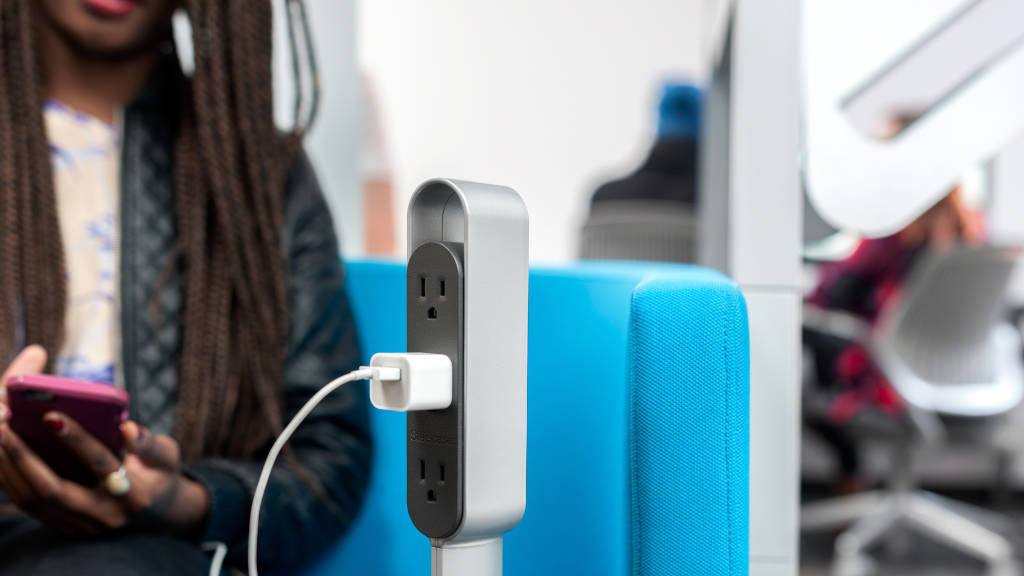
“Students are very comfortable moving the power hubs around so they can have power wherever they want it. Thread is a game changer in terms of cost. It gives us a lot of flexibility for the future, too.”
A flagship space
From its opening day, the Couch Practice Center has been a major draw. More students are using the space, in more varied learning modes and postures. The quality of student experiences has improved, too.
Couch also contributes to OU’s efforts to recruit and retain students. “When students visit residence halls, we see a lot of students and their parents coming through the Center, too,” says Verbick.
Ongoing events encourage students to engage with their peers, faculty and outside experts, and participate in hands-on learning experiences that they might not experience in the classroom.
It all began with a strategy to redeploy computer lab real estate. “We have definitely proved our concept.”
“The Couch Practice Center has become a flagship space for us on campus.”
Same size, more capability
The Couch Practice Center uses the same real estate as the former computer lab it replaced, yet offers much more:
Old computer lab
- Size: 2,643 square feet
- Traditional drywall construction
- Fixed desks, mobile task chairs
- 24 bench workstations with desktop computers
- Open seating for 12 students
- Service center with staff of two to four employees
Couch Practice Center
- Size: unchanged
- Modular walls
- Mobile tables, screens, whiteboards and seating
- Six bench computer workstations
- Open seating ⎯ task, collaborative and lounge ⎯ for 58 students
- Two enclosed spaces: smaller Huddle Room and larger Flex Room
- Expanded power and Wi-Fi availability throughout the space
- Wall-mounted flat screens and whiteboards
- Two WalkStation treadmill desks
- Service center with staff of two to four employees

